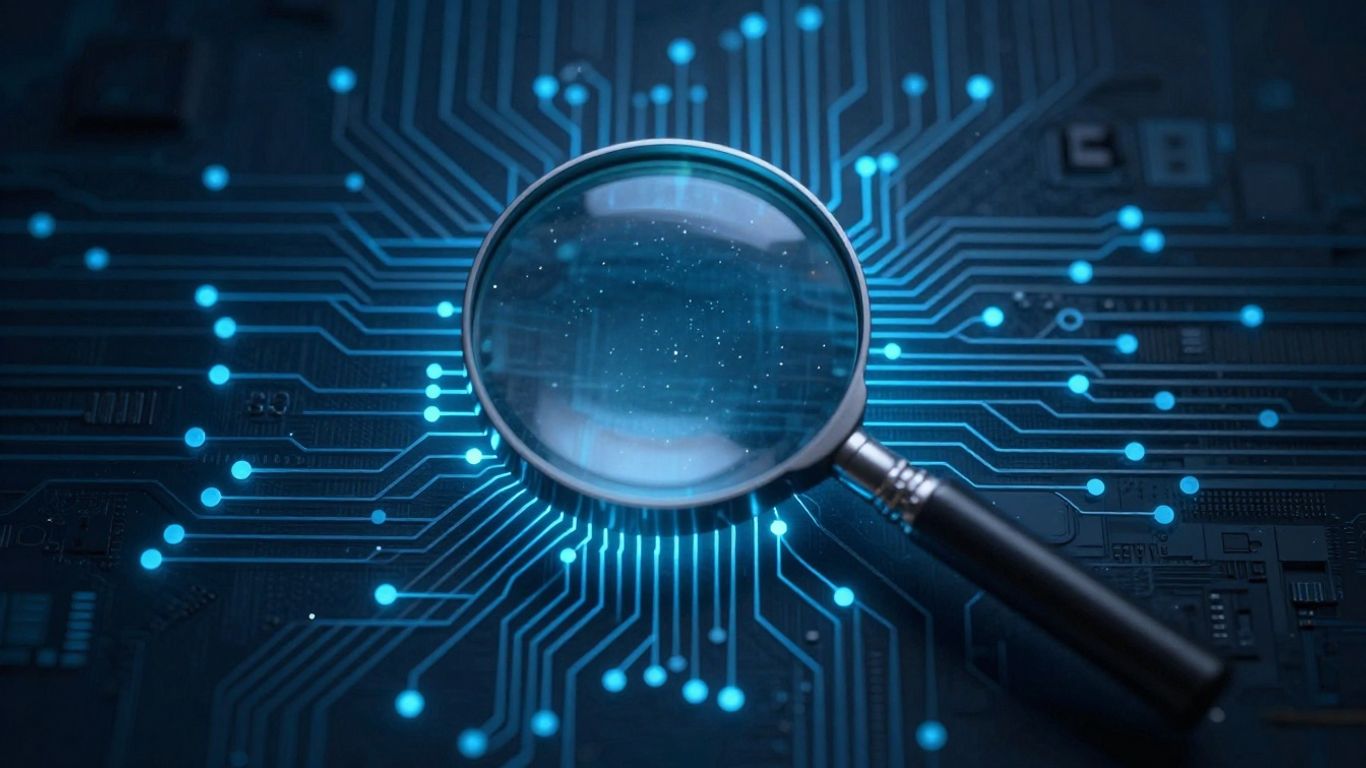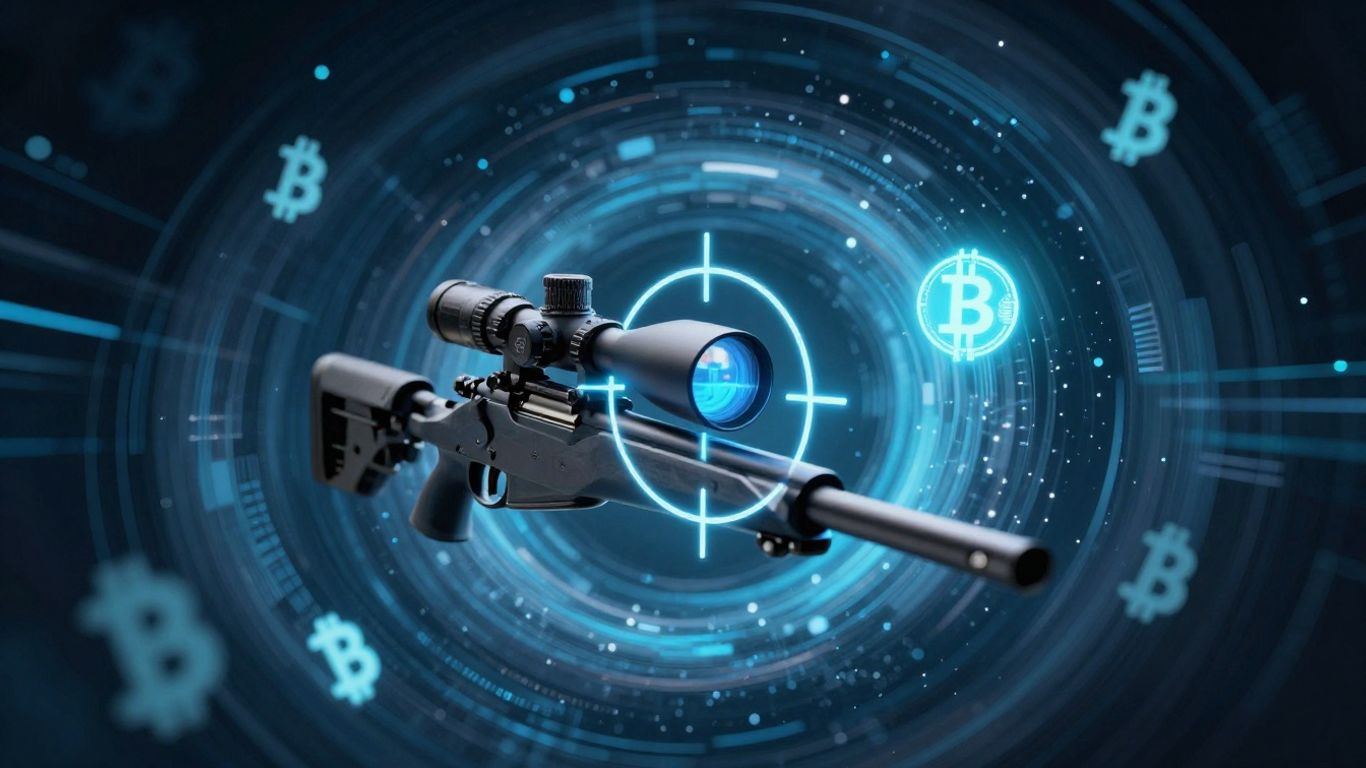[ newsletter ]
Stay ahead of Web3 threats—subscribe to our newsletter for the latest in blockchain security insights and updates.
Thank you! Your submission has been received!
Oops! Something went wrong. Please try again.
Explore how cyber security blockchain strengthens digital defenses against escalating threats, ensuring a safer future.





Cybersecurity is a big deal these days, what with all the online threats and data problems. It feels like every other day you hear about some new hack. But there's this cool thing called cyber security blockchain that's starting to look like a real game-changer for keeping our digital stuff safe. It's got some neat ideas that could really help us fight back against all the bad guys out there.
Blockchain tech is getting a lot of buzz, and for good reason. It's not just about cryptocurrency anymore; it's finding its way into cyber security. Let's break down the basics.
Okay, so what's a decentralized ledger? Think of it like a digital record book that's copied across many computers. Instead of one central authority holding all the data, everyone on the network has a copy. This makes it way harder for hackers to mess with the info because they'd have to change it on every single computer at the same time. It's like trying to change everyone's notes in a classroom all at once – nearly impossible. This is a key aspect of blockchain security.
Immutability is a fancy word that means "unchangeable." Once something is recorded on a blockchain, it's there for good. You can't just go back and erase it or alter it without everyone noticing. This is super important for cyber security because it means that records of transactions, data access, and other important stuff can't be tampered with. This ensures that the data remains trustworthy and reliable.
So, how does everyone agree on what gets added to the blockchain? That's where consensus mechanisms come in. These are rules that everyone follows to verify transactions and add new blocks to the chain. There are different types, like Proof of Work (used by Bitcoin) and Proof of Stake. They all have the same goal: to make sure that only valid transactions are added and that no one can cheat the system. It's like a digital voting system where everyone has to agree before something becomes official. This helps to prevent fraud and keep the blockchain secure.
Think of blockchain as a shared, secure, and transparent database. It's not a silver bullet for all cyber security problems, but it offers some really interesting solutions that traditional systems just can't match.

It feels like every day there's a new story about some company getting hacked. The bad guys are getting smarter, and the old ways of protecting our data just aren't cutting it anymore. That's where blockchain comes in – it's not just for cryptocurrency; it could be a game-changer for cyber security.
Cybercrime is costing us a fortune. I read somewhere that it's going to cost the world over ten trillion dollars a year soon. That's insane! It's not just about the money, though. It's about trust. People are scared to share their information online, and businesses are afraid of getting their systems messed with. This erosion of trust has a huge impact on the economy and our daily lives.
Ransomware is a huge problem. These attacks can shut down hospitals, pipelines, and other important services. When critical infrastructure is targeted, it's not just about money; it's about people's safety and well-being.
Here's a quick look at how ransomware attacks have increased:
Traditional security measures are often centralized, which means they have a single point of failure. Hackers know this, and they're always looking for ways to exploit these weaknesses. We need something that's more secure and harder to tamper with. Traditional security systems often struggle because:
The old ways of doing things just aren't good enough anymore. We need to start thinking differently about how we protect our data. Blockchain offers a new approach that could make a real difference.
Blockchain tech isn't just for crypto anymore. It's making waves in cybersecurity, offering some cool ways to beef up our defenses. Think about it: traditional security has its limits, and we need something new to stay ahead of the bad guys. Blockchain might just be the answer.
Password breaches are a huge headache. Blockchain offers a way to store passwords that's way more secure than the usual centralized databases. Instead of one big target for hackers, your password info is spread across a network. Plus, blockchain can use some fancy crypto to make sure nobody can mess with your password without your permission. It's like having a super-strong, decentralized vault for your login info.
Sharing data securely is a must, especially in fields like healthcare and finance. Blockchain can help control who gets to see what. Imagine a system where every piece of data has a clear owner, and access is granted using crypto keys. This means no more unauthorized peeking or tampering. It's all about giving you control over your data and making sure it stays safe when you share it.
Data breaches are getting more common, and they're costing companies big time. Blockchain can make it harder for hackers to pull off these attacks. By spreading data across a network and using crypto to protect it, blockchain makes it way harder for hackers to get their hands on sensitive info. Plus, the decentralized digital technologies nature of blockchain means there's no single point of failure, so even if one part of the system is compromised, the rest stays safe.
Blockchain's inherent immutability means that once data is recorded, it cannot be altered. This provides an audit trail that is transparent and verifiable, making it easier to detect and respond to security incidents.
Here's a quick look at how blockchain can help:
Blockchain isn't just some abstract idea anymore; it's actually being used to solve real problems in various industries. It's pretty cool to see how this technology is moving beyond just cryptocurrency and finding practical uses.
Healthcare is a prime example. Patient records are incredibly sensitive, and data breaches can have serious consequences. Blockchain offers a way to store this information securely and privately. Instead of a central database that's vulnerable to attack, patient data can be distributed across a blockchain network. This makes it much harder for hackers to access and tamper with the information. Plus, it gives patients more control over who can see their own medical records. It's a win-win.
Another area where blockchain is making a difference is in supply chain management. Counterfeit products are a huge problem, costing businesses billions of dollars every year. Blockchain can help track products as they move through the supply chain, from the manufacturer to the consumer. Each step is recorded on the blockchain, creating an immutable record of the product's journey. This makes it easy to verify the authenticity of a product and prevent counterfeiting. Think about luxury goods, pharmaceuticals, or even food products – blockchain can help ensure that what you're buying is the real deal.
Financial services are also getting in on the action. Blockchain can be used to secure transactions and prevent fraud. Because transactions are recorded on a distributed ledger, it's much harder for hackers to intercept or alter them. Plus, blockchain can help streamline processes like cross-border payments, making them faster and cheaper. It's not just about cryptocurrency; it's about making the entire financial system more secure and efficient.
Blockchain's ability to provide transparency and security is transforming industries. It's not a silver bullet, but it offers a powerful set of tools for addressing some of the biggest challenges in cybersecurity and data management.
Blockchain tech is always changing, and that includes how it helps with security. New stuff is coming out all the time that makes it even better at keeping our data safe. It's not just about secure transactions anymore; it's about using new ideas to stop threats before they even happen.
Zero-knowledge proofs (ZKPs) are a really cool idea. They let you prove you know something without actually showing what it is. Think of it like this: you can prove you're old enough to get into a club without showing your ID and revealing your exact birthday. This is super useful for keeping sensitive info private while still proving you have the right credentials. It's a game-changer for privacy in blockchain systems.
AI is making a big splash in cyber security, and it's no different with blockchain. AI can analyze huge amounts of data to spot patterns that humans might miss. This means it can find potential threats and stop them before they cause any damage. It's like having a super-smart security guard that never sleeps. Here's how it works:
AI can help to automate threat detection and response, making blockchain systems more resilient to attacks. It's not a perfect solution, but it's a big step in the right direction.
The Internet of Things (IoT) is growing fast, but it also brings a lot of security risks. Blockchain can help secure IoT devices by providing a secure way to manage identities and data. When you combine blockchain with IoT, you get a system that's much harder to hack. Consider these points:
Here's a simple table showing the benefits:

Imagine a world where cyber threats are anticipated, not just reacted to. That's the promise of blockchain-enabled threat intelligence. By using a decentralized, immutable ledger, threat data can be shared securely and transparently among organizations. This creates a more complete and up-to-date picture of the threat landscape. Think of it as a neighborhood watch, but for the internet. Everyone shares information, making it harder for criminals to operate.
The shift towards proactive security measures is no longer optional; it's a necessity. Blockchain offers a way to achieve this by creating a shared, trusted source of threat information.
Okay, so blockchain is great, but it's not perfect. One of the biggest hurdles is scalability. Current blockchain networks can be slow and expensive, especially when dealing with large amounts of data. This is a problem for cybersecurity, where speed and efficiency are key. The good news is that researchers are working on new solutions, like layer-2 scaling and sharding, to make blockchains faster and more efficient. These advancements are blockchain development crucial for widespread adoption.
Right now, the regulatory landscape for blockchain is a bit of a Wild West. Different countries have different rules, and it's not always clear how existing laws apply to blockchain technology. This uncertainty can make it difficult for businesses to adopt blockchain solutions. To overcome this, we need clear and consistent regulatory frameworks. We also need more collaboration between governments, industry, and academia to develop best practices and standards. This collaborative approach will help to secure data and foster trust in blockchain technology.
Here's a simple view of the current situation:
It's not enough to just try to prevent breaches; you also have to plan for when they inevitably happen. Think of it like this: you can lock your doors, but you should also have a fire extinguisher. Minimizing the impact of cyber breaches enterprise blockchain security means having incident response plans ready to go, knowing how to isolate affected systems, and having backups that are actually tested regularly. It's about damage control and getting back on your feet as quickly as possible.
Being proactive is way better than being reactive. Instead of waiting for something bad to happen, organizations need to actively hunt for vulnerabilities and shore up their defenses. This includes things like:
Proactive digital protection isn't a one-time thing; it's an ongoing process. It requires constant vigilance, continuous improvement, and a willingness to adapt to the ever-changing threat landscape. It's about building a culture of security within your organization.
Cyber security isn't a set-it-and-forget-it kind of thing. The threats are constantly evolving, so your security practices need to evolve too. What worked last year might not work this year. This means:
| Security Practice | Description the continuous evolution of security practices is key to minimizing the impact of cyber breaches.
So, what's the big takeaway here? Blockchain tech, with its cool decentralized and unchangeable features, really looks like it could change how we do cybersecurity across all sorts of industries. Getting experts and industry leaders to work together is super important to make sure we use blockchain the right way and stay ahead of those ever-changing cyber threats. The future looks pretty good, especially as blockchain keeps getting better, along with other technologies. This combo can create a really strong security system, making our digital world a lot safer for everyone.
Blockchain is like a super secure digital notebook where information is stored in 'blocks' and linked together. It's really hard to change once it's written, making it great for keeping things safe.
It makes things safer by spreading information across many computers instead of just one. This makes it much harder for hackers to mess with data, and it helps keep records honest and clear.
Yes, it can! Instead of storing your passwords in one place that hackers might attack, blockchain can help create super-strong, unique digital keys. This makes it tougher for bad guys to get into your accounts.
It's already being used to protect medical records, track products in stores to stop fakes, and make sure money transactions are super secure. It's like a digital bodyguard for important information.
Some challenges include making it work fast enough for huge amounts of data and figuring out how different blockchain systems can talk to each other. Also, we need clear rules about how it should be used safely.
The future looks bright! We might see blockchain helping to share warnings about new cyber threats, working with smart devices in our homes, and even making sure our private information stays private using cool new tricks.


